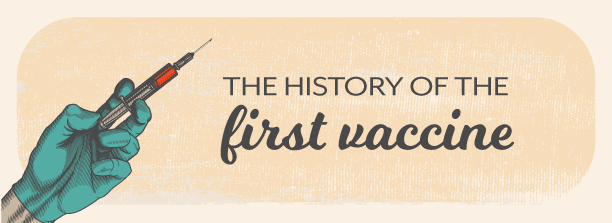When the U.S. Food and Drug Administration approved the first COVID-19 vaccine in December, it felt like a beacon of hope for health care workers. After working tirelessly for almost a year in ICUs and ERs, our frontline workers now have the upper hand to combat the virus. The Pfizer and BioNTech COVID-19 vaccine was administered on December 14th to Sandra Lindsay, a nurse and director of patient services for Long Island Jewish Medical Center’s ICU. She reported that it felt no different than receiving a normal vaccine and she trusts science will prevail during these tough times.
There’s some skepticism surrounding the effectiveness of the vaccine due to its rapid development and distribution. From the first clinical trials, Moderna and Pfizer/BioNTech reported 90% effectiveness at blocking symptomatic disease for several variants of SARS-CoV-2 establishing a strong foundation for scientists to update the vaccine to combat future mutations of the virus.
The development of the COVID-19 vaccine is a result of many significant advancements in modern medicine. To understand its significance, let’s examine the history of vaccine development and how diseases have affected civilization throughout the years.
Download the infographic here.
The History of Vaccination
Smallpox is considered to have existed prehistory with the earliest sign of exposure found on three Egyptian mummies between the times of 1570-1050 BCE. As global trade and colonization progressed, the spread of smallpox affected populations around the world with its high mortality rate. It wasn’t until 1774 when English farmer Benjamin Jesty performed variolation, which is the process of purposeful exposure to the smallpox pustules either through the nose or into the arm. This process was named after the variola virus that causes smallpox. This method proved to be effective as people who routinely received variolation were unaffected by smallpox throughout their lives.
Another notable figure who took a more active approach in eradicating smallpox was Edward Jenner, an English doctor who developed the first smallpox vaccine. He made the connection between milkmaids who recovered from cowpox and noted that they were unaffected by smallpox after variolation. In 1796, he took the bodily fluid from a fresh sore of a milkmaid who developed cowpox, and inoculated 9-year-old James Phipps. Initially, the boy experienced cold-like symptoms such as slight headaches, loss of appetite, and chills; however, he fully recovered on the tenth day and resumed normal life.
Jenner inoculated James a second time six weeks after the initial exposure to cowpox. James did not experience any side effects, thus confirming Jenner’s hypothesis that inoculation by cowpox decreased the chances of falling ill to smallpox. Concluding his findings as true, Jenner also believed that routine inoculation would extend immunity in case a person encountered a different variant of smallpox. In 1801, he self-published a book called “On the Origin of the Vaccine Inoculation” to share his discoveries in hopes of eradicating smallpox in larger areas. Cowpox is caused by the vaccinia virus, leading Jenner to call this process of injecting fluid to increase immunity as “vaccination.”
Eradicating Smallpox Worldwide
Jenners expressed his wishes to eradicate the virus, and 180 years later, his wish came true. After he published his findings, vaccination was gradually accepted by the medical community as a modern alternative to variolation. From 1890 to 1950, more bacterial vaccines were developed to increase immunity against life-threatening diseases like cholera, measles, and tetanus. As technology improved and medical professionals discovered more about the nature of our genetic code, the field of vaccinology grew in knowledge to improve vaccine development to increase safety and effectiveness.
Though there were many medical breakthroughs that explored immunity against diseases, making vaccines easily accessible to the public was still an issue. Due to the lack of manufacturing and distribution methods, the ability to eradicate smallpox by vaccine was greatly stunted for a century and a half. The World Health Organization (WHO) established a plan in 1956 to rid the world from the disease, but was hindered by the limited number of available vaccines, insufficient staffing, and funding. It wasn’t until 1967 when the Intensified Eradication Program started with renewed efforts to properly fund, supply, and distribute the vaccine globally at a quicker rate. With these increased efforts, the World Health Assembly declared smallpox officially eradicated on May 8th, 1980.
The Future for the COVID-19 Vaccine
In modern day, it takes about 12 to 18 months for a vaccine to pass clinical trials and meet the FDA’s criteria for development and distribution. Due to the global efforts to produce a vaccine in response to COVID-19, doctors and scientists were able to create a non-traditional type of vaccine in 10 months. Instead of using a passive form of the virus, as we would use for the common cold or flu, the SARS-CoV-2 vaccine utilizes mRNA so our bodies can produce the correct antibodies before encountering the virus. mRNA vaccines are new considering it was introduced in 2018; however, it has been proven to be effective and easier to synthesize.
Though the development is vastly different from traditional vaccines, science continues to save lives in the face of disease. When you look at how doctors injected fluids from cowpox sores in the 19th century, modern medicine has come a long way in establishing immunity safely and effectively. The development of the COVID-19 vaccine is a testament to humanity’s perseverance in the face of disease while continuing to achieve medical breakthroughs.
Eisenhower Health recognizes all of the doctors, nurses, EMTs, and other health care professionals who maintained compassion while providing needed care and treatment for COVID-19 patients. Our courageous efforts to overcome COVID-19 is getting one step closer each day.
Explore our Career page for available positions at our world-class medical center.
Originally posted on 22/2/2021
